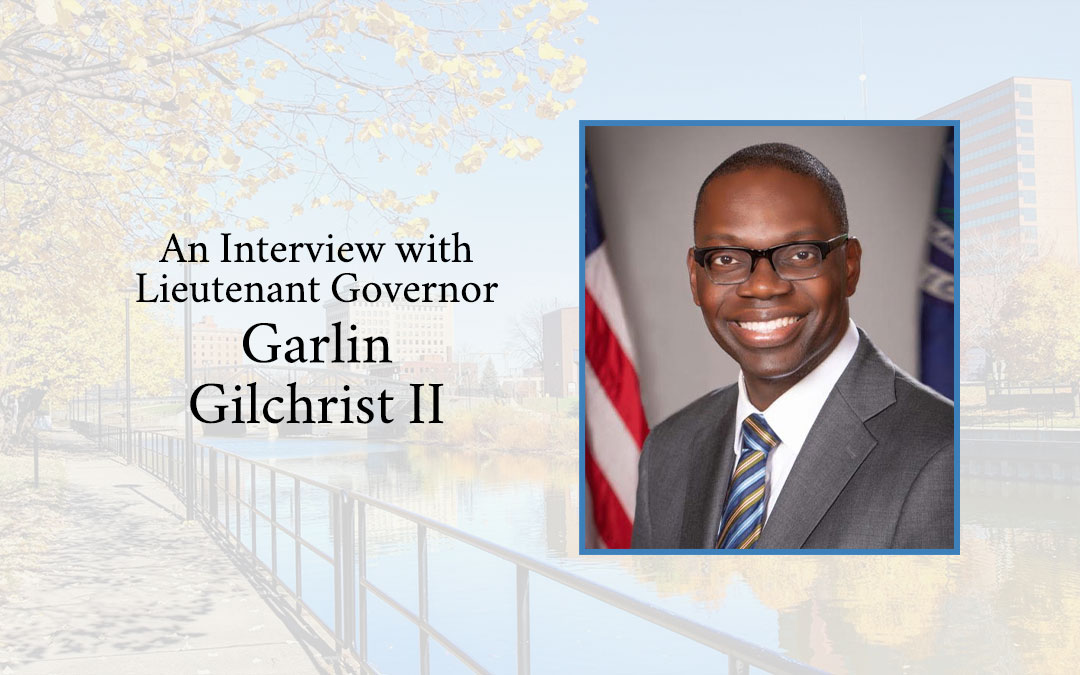An interview with Lt. Governor Garlin Gilchrist II
Nearly half of individuals who engaged in mass shootings (48%) leaked their plans in advance to others, according to the National Institute of Justice.
The National Institute of Justice website also states of all mass shooters in the The Violence Project database, 30% were suicidal prior to the shooting.
In addition, mental health issues were common among those who engaged in mass shootings, with psychosis playing a minor role in nearly one-third of the cases, but a primary role 10% of the time.
On Wednesday, April 19, in the Michigan Senate, a bill was passed for Extreme Risk Protection Orders.
People who are known to be a danger to themselves or a danger to other people will temporarily have their firearms removed while they are a threat. Nationwide, most of the time, a removal order can be extended if an additional hearing is held.
The Extreme Risk Protection Orders are expected to be very beneficial towards reducing gun violence.
The Courier recently talked with Lt. Governor Garlin Gilchrist II, who has lost loved ones because of gun violence, about his role in working to get gun violence prevention bills signed into law.
Gilchrist pointed out this gun violence can range from a shooting that happened randomly, or day-to-day in our community, to a mass shooting.
“When I was in middle school, we had classmates who lost their siblings to accidental gun deaths in their homes due to unsecured firearms,” Gilchrist added. “Earlier in my career, after Trayvon Martin was killed, I helped organize the national response to that shooting by George Zimmerman. That’s weighed on my heart heavily for a long time, and I’m proud to stand tall alongside Governor Gretchen Whitmer in this democratic majority in the Michigan Legislature to get the first meaningful gun violence legislation in a long time enacted into law here in the state of Michigan.”
On April 13, Whitmer signed Senate Bills 79, 80, 81 and 82 and House Bills 4138 and 4142. The bills go into effect next year.
Senate Bill 79 will protect children by requiring an individual to keep a firearm being stored or left unattended on a premise unloaded and locked with a locking device or stored in a locked box or container if it is reasonably known that a minor is or is likely to be present on the premises.
The bill establishes a range of penalties for a violation.
Senate Bill 80 updates the state’s criminal code for safe storage of firearms for child access protection.
Senate Bills 81 and 82 lower the costs of firearm safety devices to ensure owners can safely store their guns.
House Bills 4138 and 4142 expand universal background checks to all firearms and help close loopholes in the law.”
The purchaser of both handguns and long guns will be required to get background checks.
“We’ve had operations like Operation Safe Neighborhoods, that we started last year, which has gotten hundreds of illegal guns off the streets, particularly in our cities like Flint and others. People on probation or parole shouldn’t have firearms. It’s illegal to have a firearm in possession if you have that status. There is also $10 million in the budget the governor’s office is enacting for Community Violence Intervention Programs. These evidence-based programs involve working with community partners to reduce violence and help give people nonviolent activities to do.”
“On law enforcement violence specifically, we have been making sure that law enforcement professionals are better trained, better supported, that we’re checking for their mental health, as well. Doing a very stressful job and being in dangerous situations sometimes put people in positions to make poor choices. I believe personally as a Black person who has experienced interactions with the police that were not positive, that we need to make sure that everyone knows that they can go home and be in interaction with anyone in our community, whether it’s a law enforcement professional or not. We want everyone to go home whole at the end of the day or end of the night. The governor and I are going to make sure that’s possible in every community and that we see fewer disparities when it comes to what happens in the beginning, middle or end of police interactions.”






